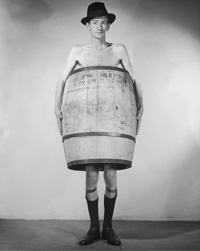Negotiating Punishment in the NFL and the NBA
 Every few months, there is a new media feeding frenzy surrounding a star athlete for something he has done or said off the playing field. The allegations of sexual assault against Ben Roethlisberger provide just one recent example. Although off-the-field misconduct may sometimes result in serious legal liability (see Plaxico Burress), the most damaging sanctions are often those imposed by a league commissioner. For instance, in a world of multimillion-dollar sports contracts, a suspension for even a few games (like Roethlisberger’s) can be extraordinarily expensive. Yet, such sanctions are typically imposed under vaguely worded league rules and without much by way of formal procedural protections.
Every few months, there is a new media feeding frenzy surrounding a star athlete for something he has done or said off the playing field. The allegations of sexual assault against Ben Roethlisberger provide just one recent example. Although off-the-field misconduct may sometimes result in serious legal liability (see Plaxico Burress), the most damaging sanctions are often those imposed by a league commissioner. For instance, in a world of multimillion-dollar sports contracts, a suspension for even a few games (like Roethlisberger’s) can be extraordinarily expensive. Yet, such sanctions are typically imposed under vaguely worded league rules and without much by way of formal procedural protections.
For these reasons, Matt Parlow wonders in an interesting new article whether the player unions will make an issue of the commissioners’ authority to punish in the impending renegotiation of collective bargaining agreements in the NFL and the NBA. Whether or not they do, Matt makes a good case that the unions should pay close attention to this issue.
The article, entitled “Professional Sports League Commissioners’ Authority and Collective Bargaining,” appeared at 11 Tex. Rev. Entertainment & Sports L. 179 (2010). It is available here on SSRN. The abstract appears after the jump.

